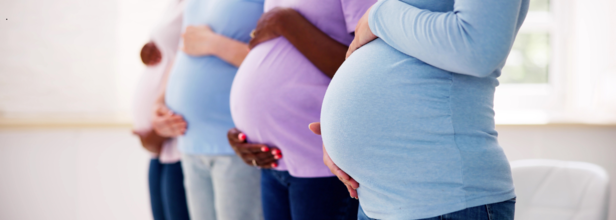
Food Insecurity During Pregnancy Can Lead To Complication, Finds Study
As per a new paper published in JAMA Network Open which used data from an online health survey of more than 19,300 pregnant Kaiser Permanente Northern California members between June 2020 and September 2022, it was found that hunger and pregnancy complications went hand in hand. This means while pregnancy those who go hungry or worry about food are at the higher risk of complications, which includes preeclampsia and gestational diabetes.
Preeclampsia: This occurs when the mother has high blood pressure during pregnancy, usually happening after 20 weeks of pregnancy.
Gestational diabetes: It is a condition that causes high blood sugar levels during pregnancy, especially when the body cannot produce enough insulin to meet the extra demands of pregnancy.
However, the researchers did not find the same risks among those who received food and assistance while they were pregnant.
How was the study conducted?
Participants were asked questioned and screened for food insecurity. They were asked if they had ever run out of food or were worried about running out of food due to lack of money during their pregnancy. Of them, 14% of the participants, which makes it around 2,700, said that they had experienced such food insecurity during their pregnancy. While 7.6%, which makes them around 1,470 participants said that they had received the food assistance while pregnancy.
Food assistance during pregnancy helps the mother and her baby to get the nutrition they need. It also helps mother to have a stress-free pregnancy without having to worry about what she must or must not eat. With guided assistance for food, the mother is given the food which is necessary to avoid complication and improve health conditions.
What did the study find?
The study found that food-insecure participants had a higher rate of gestational diabetes, making up to 10.9% of them, versus the 7.9% among those without food insecurity. Of them, 8.1% had the risk of preeclampsia, and other complications, which included preterm birth, neonatal ICU admission and many. The study however clarified that gestational hypertension and caesarean delivery were not associated with food insecurity.
Why Is It A Concern?
Food insecurity is also characterized by insufficient access to nutritious food, which is detrimental during pregnancy. Lack of adequate nutrition can lead to severe health problems for both the mother and the babies.
The researchers note: "Pregnancy is a critical period during which exposure of food insecurity can have magnified detrimental effects on the pregnant individual and their developing fetuses."
There are food assistance programmes built for pregnant women and help them receive the care best suitable for them and their developing babies. Some of the programmes include:
- Supplemental Nutrition Assistance Program (SNAP): A federal program that helps people buy food
- Special Supplemental Nutrition Program for Women, Infants, and Children (WIC): A program that helps pregnant women, infants, and children get nutritious food
- Local food banks: Food banks can help pregnant women get food
Fruits: cantaloupe, honeydew, mangoes, prunes, bananas, oranges, grapefruit
Dairy: fat-free or low-fat yogurt, skim or 1% milk, and soymilk
Vitamin C: citrus fruits, broccoli, tomatoes, strawberries
© 2024 Bennett, Coleman & Company Limited

